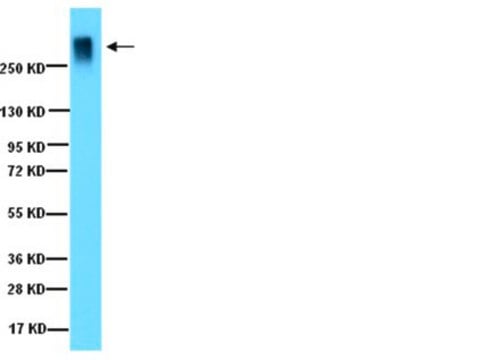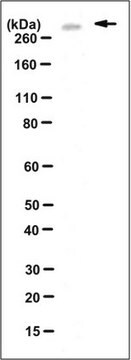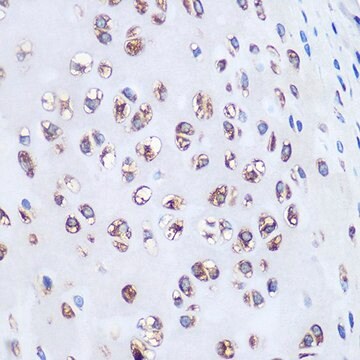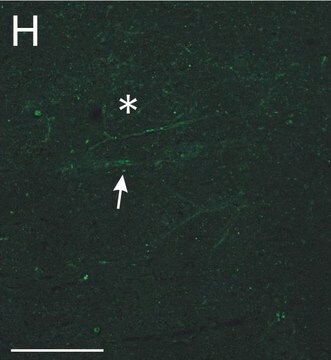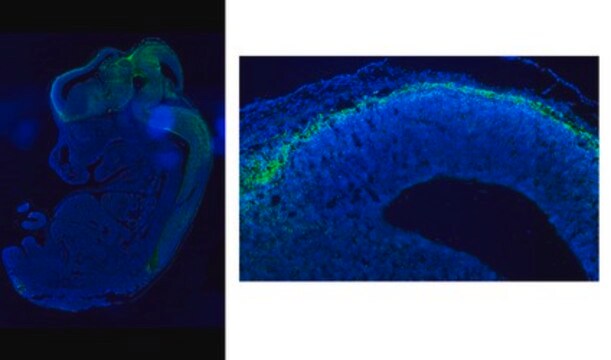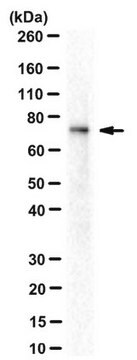MABT83
Anti-Aggrecan Antibody, clone 6B4
clone 6B4, from mouse
Sinonimo/i:
Aggrecan core protein, Cartilage-specific proteoglycan core protein, CSPCP, Chondroitin sulfate proteoglycan core protein 1, Chondroitin sulfate proteoglycan 1, Aggrecan core protein 2
About This Item
Prodotti consigliati
Origine biologica
mouse
Livello qualitativo
Forma dell’anticorpo
purified immunoglobulin
Tipo di anticorpo
primary antibodies
Clone
6B4, monoclonal
Reattività contro le specie
bovine
Reattività contro le specie (prevista in base all’omologia)
human (based on 100% sequence homology)
tecniche
immunohistochemistry: suitable
western blot: suitable
Isotipo
IgG1κ
N° accesso NCBI
N° accesso UniProt
Condizioni di spedizione
wet ice
modifica post-traduzionali bersaglio
unmodified
Informazioni sul gene
human ... ACAN(176)
Descrizione generale
Immunogeno
Applicazioni
Immunohistochemistry Analysis: A representative lot was used by an independent laboratory in human chartilage tissue (Williams, R., et al. (2010). PLoS One. 5(10):e13246.).
Cell Structure
ECM Proteins
Qualità
Western Blot Analysis: 1 µg/mL of this antibody detected Aggrecan in 10 µg of purified protein from bovine tissue lysate.
Descrizione del bersaglio
Stato fisico
Stoccaggio e stabilità
Risultati analitici
A1D1 purified protein from bovine tissue lysate
Altre note
Esclusione di responsabilità
Non trovi il prodotto giusto?
Prova il nostro Motore di ricerca dei prodotti.
Raccomandato
Codice della classe di stoccaggio
12 - Non Combustible Liquids
Classe di pericolosità dell'acqua (WGK)
WGK 1
Punto d’infiammabilità (°F)
Not applicable
Punto d’infiammabilità (°C)
Not applicable
Certificati d'analisi (COA)
Cerca il Certificati d'analisi (COA) digitando il numero di lotto/batch corrispondente. I numeri di lotto o di batch sono stampati sull'etichetta dei prodotti dopo la parola ‘Lotto’ o ‘Batch’.
Possiedi già questo prodotto?
I documenti relativi ai prodotti acquistati recentemente sono disponibili nell’Archivio dei documenti.
Il team dei nostri ricercatori vanta grande esperienza in tutte le aree della ricerca quali Life Science, scienza dei materiali, sintesi chimica, cromatografia, discipline analitiche, ecc..
Contatta l'Assistenza Tecnica.